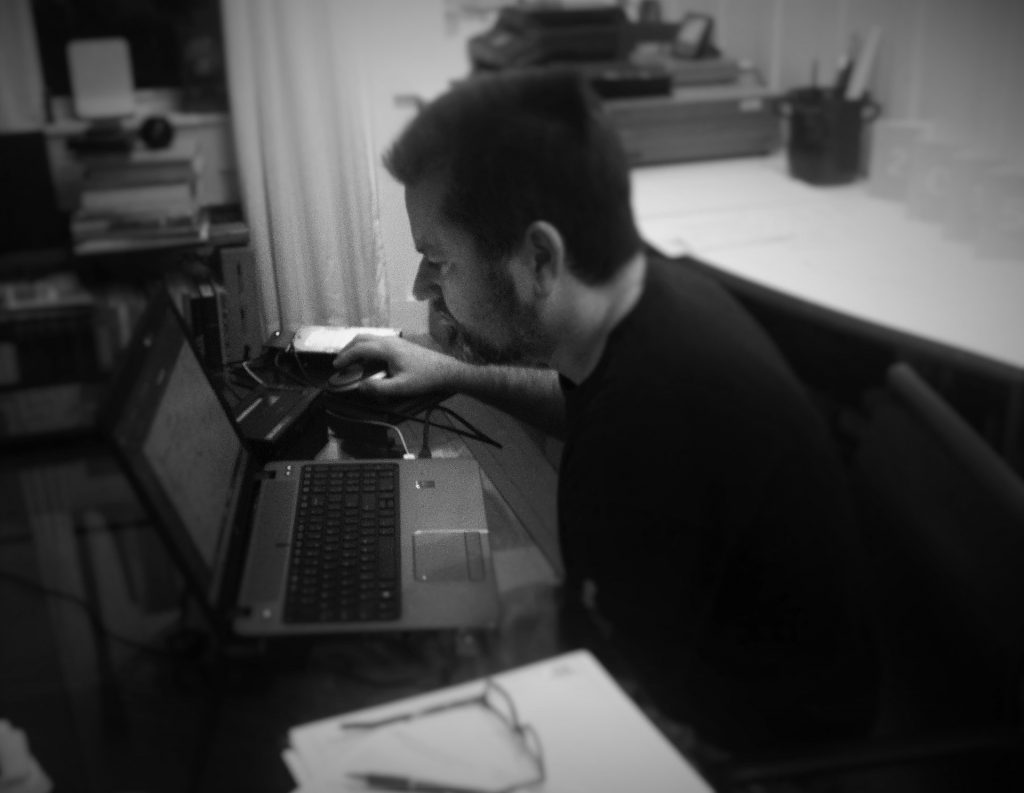A 9 Step Guide to “What is Healthy Living”
The term “healthy lifestyle” is bandied about with gay abandon these days, but what does it really mean to you?
Different media sources have different meanings for the term, but generally speaking, I feel it can be boiled down to, “How we should live if we want the healthiest body we can have – one that looks and feels good and provides us with independence and quality of life in our retirement years.”

But if you were to survey people on the street and ask them what living a healthy lifestyle means to them, most are more likely to answer, healthy eating and getting enough exercise.
And while those are two major components of how to live a healthier lifestyle, it can (and should) be much more than that – which is what this Healthy Living guide is all about!
1. Healthy Diet – Clean Eating
Unfortunately, throughout the western world, and now infiltrating outside of those boundaries, the proliferation of fast foods and unhealthy eating habits has produced some terrifying figures for our nation’s health providers.
Quickly consider the following two quotes:
Wikipedia says “Obesity in the United States is a major health issue, resulting in numerous diseases. Obesity has continued to grow within the United States. Two of every three American men are considered to be overweight or obese, but the rates for women are far higher. The United States contains one of the highest percentage of obese people in the world.”
And these alarming stats from the AMA say, “The nation’s (US) obesity rate is approaching 40 percent after holding around 34–35 percent between 2005 and 2012, according to data in The State of Obesity: Better Policies for a Healthier America 2018.”
In general, people in developed countries are eating far too much unhealthy processed foods. Their pear and apple body shapes visibly show they are not eating a healthy diet.
But just what is a “healthy” diet?
We need to remember, when thinking about the word healthy that “Healthy is not a size…..it is a lifestyle.”
So it’s all about a healthy eating style.

Also, I don’t like the word diet because it is well proven that, in the long term, Diets Don’t Work.
Good eating habits are ones that start with adding more fresh fruits and vegetables to your daily diet. By doing so, you are also adding extra fiber to your diet which has been shown to slow down the digestion process and keeps you feeling fuller for longer.
Read some more here about what the Mayo Clinic has to say about dietary fiber is essential for a healthy diet.
This extra fiber in turn reduces the urge to snack between meals on unhealthy foods and reduces the number of calories consumed per day. Also, many of the vegetables are very low in calories. Some require more calories to digest them than what they contained in the first place so that’s great if you are trying to lose some weight
Other aspects of a healthy diet include reducing the amount of salt and added sugar found in most processed foods.
Food that comes in a box or packet or you buy it already prepared is most likely not good for you. Instead, focus on adding more lean meat, fish and whole grain to your diet.
A Mediterranean diet is an ideal way of enjoying your food and maintaining a healthy body.
Here is one simple way you can start eating healthier.
2. Are You Getting Enough Exercise?
Most people view exercise as a burden or a way to burn calories and lose weight. But it is much more than that.
While exercising does burn calories, if losing weight is the goal, 80% of weight loss will be from the type and quantity of food consumed and 20% will be from exercising.
Exercise has more to do with building a strong body inside and out than it does with burning calories.
Strength training is also extremely important as we age as it is the only way to stop the symptoms of sarcopenia – we all suffer from it and it takes away our independence as we age…..but you can do something about it by exercising.
To make the most of your retirement years this article explains why it is very important to understand Why Exercise Is Vital in Preventing Serious Health Issues in Old Age.
The other equally important form of exercise is cardio.

When you do cardio training, you are increasing your heart rate and breathing rate. This in turn means you are drawing in more oxygen into your lungs.
That oxygen enters your blood stream and because your heart is working faster, it is delivering more oxygen-rich blood to the cells so they can provide more energy to power your body systems and muscles.
An increased breathing and heart rate improves the lungs and heart. After all the heart is just a muscle; work it like other muscles, and it will get stronger (along with the rest of your cardiovascular system.)
The American Heart Association recommends getting 150 minutes of vigorous activity each week. This should be a combination of both cardio and strength training.
And for all my Aussie mates you can get a great guide for your exercise requirements here: Australia’s Physical Activity and Sedentary Behaviour Guidelines.
Many older readers tend to shy away from cardio workouts especially after reading about workouts based on HIIT. This following article will help put your mind at rest……check it out: Discover the Benefits of Low Intensity Steady State Cardio or LISS.
3. Make Sure You Are Getting Enough Quality Sleep
During the night when you are sleeping, your body is working to repair itself along with accomplishing several other “housekeeping” activities.
So, it stands to reason that if you are not getting enough sleep, your body can’t perform all of its activities that it normally would do over the course of 7 to 8 hours of sleep.

There can be several reasons why you are not getting enough sleep. It could be that you are overly stressed thinking about all the work you must do tomorrow etc etc.
Or it could be environmental reasons, like your bedroom is too warm, too much light is shining in, your mattress is uncomfortable, there is too much noise outside, etc. Each of these can be corrected to give you more and a better night’s sleep.
Here’s another article I wrote that will help you with your sleeping habits: 8 Causes of Insomnia You Should Know About.
4. Maintaining a Healthy Weight for “You”
As mentioned earlier, obesity is knocking on the door of becoming an epidemic around the globe so we need to become smarter with our daily health and exercise decisions.
While many people may know they are carrying more weight than is healthy, do you know how much you should weigh?
It is a fairly simple process to determine ideal weight and figuring out how many calories one burns during the course of a day if part of the process.
The first part involves figuring your Basal Metabolic Rate (BMR) and Active Metabolic Rate (AMR).
With a little searching on the Internet, it is easy to find a calculator where you plug in your height, weight, age and gender, and the number of minutes you exercise each day, along with your level of exercise, and it will give you the number of calories you should be consuming each day to maintain your current weight.
For example, a 30-year-old male weighing 150 pounds who is 5’7” tall and exercises at a moderate level of activity for 30 minutes per day, needs 1,773.4 calories per day to stay at his current weight.
But to lose weight, the person must reduce his recommended calorie intake by at least 500 calories per day. That can be done either through diet or exercise, however, the best combination is to reduce the diet by 250 calories and burn 250 more calories per day through exercising. Over the course of a week, he will lose one pound.
Also read: What’s the Ideal Weight for My Height and Age.
5. Minimize Your Sitting Time Each Day
One of my favourite sayings is, “If you want to keep moving then you have to keep moving.” The older I get the more I find this to be true, especially now I am well over 70.
The newest disease of today is not caused by a bacteria, virus or smoking; it is caused by too much sitting!

It has been coined as the “sitting disease” and is a degradation of health usually caused by sitting for hours on end.
It could be from watching too much T.V. (a problem for many older people) or from sitting behind a desk or steering wheel of a vehicle.
Symptoms can range from obesity, to an increase in blood pressure, high blood sugar, excess belly fat (the worse kind because it goes deep into your organs), high cholesterol levels DVT (Deep Vein Thrombosis).
The “cure” is not with medication, but by getting up regularly and generally moving more throughout the day.
Read this story in which I talk about the narrow escape my son had in his early to mid 30’s because his job entails sitting at a computer all day – it is enough to make you change what you do at work, or if you are retired, how you spend your day: Sitting, Exercise and Premature Death – How To Make Sure You Are Not One of the Statistics.
For each hour of sitting, get up and move at least 5 minutes. Some of the tactics used are instead of sending a colleague that is in the same building an email, print it out and walk it over to their desk. Get up to get a drink of water each hour; most of us don’t drink enough water anyway.
One great way to move more is to walk down the stairs to the local park at lunch time and then eat your healthy brown bag lunch you brought from home before going back to work.
6. Curbing Your Unhealthy Habits
Clean eating, exercising, getting enough sleep, minimizing sitting time and maintaining your weight are all well and good, but then many people sabotage their efforts by clinging to ingrained unhealthy habits.
Two of the worst are smoking and drinking alcohol to excess.
7. Smoking
In this day and age, with all the damming evidence available, I find it difficult to understand why people still choose to smoke.
Not only does smoking damage your lungs, but it can affect your eyesight, bones, immune system and your heart.
And of course, it has been linked to lung cancer for a number of years… yet people continue to smoke in spite of all the known risks.
The bottom line is if you are really serious about living a healthier lifestyle, you must quit smoking.
There are a number of good resources to help you quit so do some research and find one that works for you – period.
Your body will thank you for your good decision to quit.
8. Drinking to Excess
Not only do many of the fancy drinks out there contain large amounts of calories, but when done in excess, drinking can lead to eating unhealthy food which in turn raises your daily caloric intake.
If those calories are not offset with exercise, it can lead to weight gain. And it is well proven that too much alcohol in general is not good for you.
Numerous reliable studies show that excessive consumption of alcohol can damage the brain, heart, liver, weaken your immune system and of course when combined with driving lead to car crashes resulting in death.
Men should limit themselves to no more than two drinks per day; women only one drink per day. I also aim at having two alcohol days per week to give my old system a bit of a rest.
Here is a study I am sure you will find interesting: Drinking Wine is More Important than Exercise to Living Past 90.

9. Stress Management
Stress is a normal part of life; as a matter of fact, we all need some stress to survive.
But when it becomes excessive over a long period of time – chronic stress – it begins to cause health problems.
If you frequently get unexplained headaches, or an upset stomach, have high blood pressure, occasional chest pain, problems sleeping, or are gaining weight but you are not really doing anything differently, you may be experiencing the effects of chronic stress so go and see your doctor.
The main reason behind these health-related symptoms is a hormone called cortisol that is released when we are stressed.
Evolutionary-wise, it was meant to get our ancient ancestors out of an occasional “fight-or-flight” situation. However today it is commonplace to always have our system overloaded with it and to suffer its effects.
Notice how stress can cause trouble sleeping. Reduce the stress and maybe you’ll sleep better. This gives your body time to repair itself.
Also check out these 7 Things Stress Does to Your Body, to You and to Your Health.
In Closing:
Eat healthier and get more exercise and you’ll start to lose weight and feel healthier.
If you include some weight training as part of your exercise program, you will tone and build muscle. Because muscle burns more calories than fat, the number of calories you burn per day will go up.
Avoid sitting too long and kicking your unhealthy habits to the curb will increase the status of your health too. Are you starting to see a pattern of how all these little things all lead to living a healthier lifestyle?
And these are just the physical benefits you can gain!
You will also feel better emotionally and mentally, which reduces the risk of depression, anxiety and in some extreme cases, suicide.
All of a sudden, you are happier, and life seems like it is worth living again. And who knows where that will lead!
Implement these 9 lifestyle choices into your life and see just what a difference it can make.
You’ll never go back once you do!
Cheers – John – your Active Ageing Mentor and Coach.
P.S. Help a friend have a healthier and happier life – like and share. Thanks.
P.P.S. In your search for better health here are some of my recipes you might like to try: Healthy Recipes.
Are you an Aussie? Great common sense advice mate.
Yes, I am an Aussie Shane – born and breed. Thanks for your thumbs up. Cheers – John.